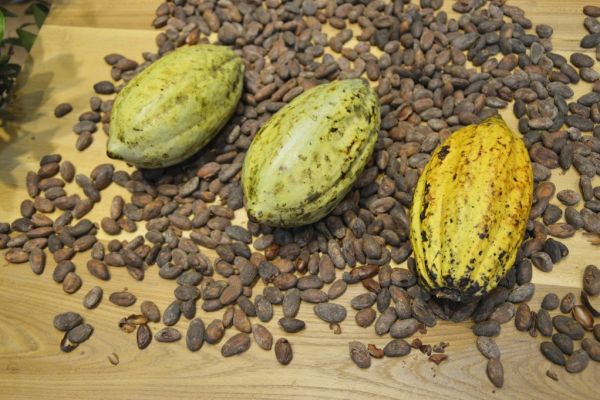Tumbling cocoa prices and unscheduled payments to civil servants and mutinous soldiers in the past two months could widen Ivory Coast’s budget deficit and curb growth this year.
Cocoa prices have fallen by more than a third after reaching a six-year high in July, denting revenue for the world’s biggest producer of the chocolate ingredient. This year the West African country’s government has tried to defuse military and social unrest by agreeing to pay bonuses to soldiers and making some concessions to civil servants who led a strike earlier this year.
The budget deficit will probably widen to 5% of gross domestic product this year compared with government estimates of 3.9% for 2016, said Charles Robertson, global chief economist at London-based Renaissance Capital. The International Monetary Fund will on March 22 start a review of the three-year program agreed on last year and may adapt the $670 million deal depending on the impact of the combination of lower revenue and increased spending, according to Alain Feler, the lender’s representative in the country.
“Concessions were granted to civil servants, payments were made or promised to mutineers; it means additional spending,” Feler said by phone. “There’s a revenue shortfall as cocoa prices dropped strongly. The question that’ll be raised is whether the deficit target is still appropriate.”
Surplus Forecast
Cocoa futures jumped more than 50% in four years through 2015, which encouraged more output and curbed demand. Prices began sliding from July amid forecasts of a surplus. Beans for delivery in May rose for the first time in five days on March 10, adding 1.5% to 1,595 pounds ($1,949) a metric tonne in London. The bean accounts for about a fifth of the nation’s exports and according to the IMF a 1% change in cocoa export revenues can lead to 0.63% shift in government spending.
A decade-long conflict, during which the economy contracted for three out of the ten years, ended in 2011 when President Alassane Ouattara came to power. The state agreed in January to pay almost $20,000 each to some soldiers to quell a mutiny over unpaid bonuses and better living conditions. The government repeatedly declined to confirm the total amount paid.
While the government said in September it will target a fiscal deficit of 3.4% of GDP in 2017, from an estimated 3.9% last year, Ivory Coast will revise its 2017 budget following the cocoa-price drop and provision for new expenditure, spokesman Bruno Kone said last week.
The nation’s “resources are largely sufficient to face these expenses despite a drop in cocoa prices,” Kone said by phone. “There’s nothing catastrophic.” He didn’t elaborate.
T-bills Auction
The budget adjustments come amid a liquidity squeeze in Francophone West Africa’s monetary union after the Dakar, Senegal-based regional central bank tightened access to its refinancing window in December and raised the marginal lending facility rate. As a result, demand at debt auctions is low and Ivory Coast and other countries are struggling to raise funding on the regional market. Last week, the government sold 29.9 billion CFA francs ($48 million) of T-bills out of 50 billion CFA francs on offer.
“The authorities could be tempted to step up supply if financing requirements increase,” said Samir Gadio, an analyst at Standard Chartered Bank.
Ivory Coast’s economy expanded an estimated 8% last year, according to the IMF, the fastest in sub-Saharan Africa. While growth is forecast at the same level for 2017, it will slow in coming years, according to John Ashbourne, Africa economist at Capital Economics Ltd. in London.
“The country is still enjoying the tail-end of the post-conflict boom that started in 2011,” Ashbourne said by email. “Maintaining this rate of growth was never a long-term prospect. I don’t think that any of the problems we’ve seen in Ivory Coast recently are enough to knock the wheels off the bus, but they might expedite the end of the boom.”
News by Bloomberg, edited by ESM. Click subscribe to sign up to ESM: The European Supermarket Magazine.














